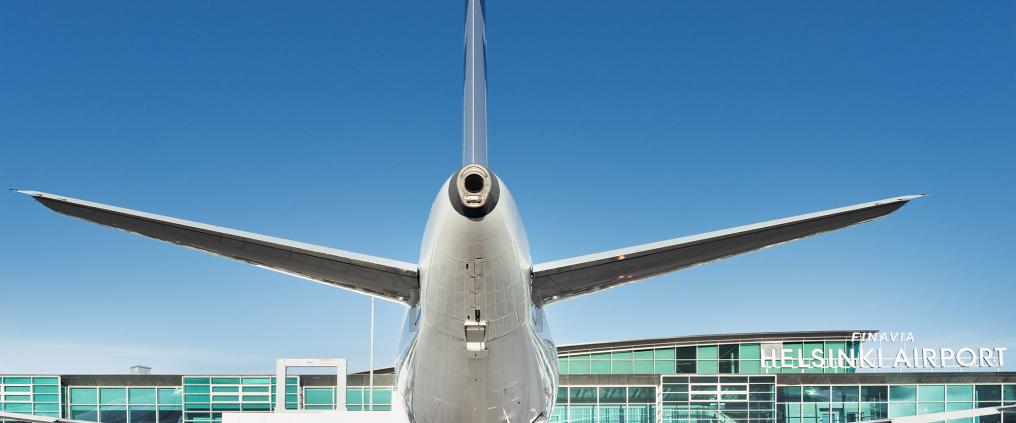It is the joint view of the parties involved that Finland cannot go against the general consensus of the EU and deviate from the goals and spirit of the EU’s green certificate by demanding additional testing and voluntary quarantine from those arriving in the country with a test certificate. Finland must align itself with general European policies to enable health-secure travel instead of making it more difficult. Finland cannot afford to turn inwards.
STM’s proposal entirely neglects free travel from countries where the pandemic situation is good and the incidence value is lower than 75, to which all Member States are committed with regard to free travel across the external borders of the EU. As vaccination coverage increases, we can expect more and more countries to be accepted into this category over the course of the summer. Many EU countries are about to open up travel arrangements with countries where the pandemic situation is good while deploying a variety of tools to thwart the latest virus variants, for example.
Practical problems at the border and negative impacts on Finland’s image
The proposed operating model also causes concrete problems at the borders as the health certificates are not checked in the country of departure and must, instead, be presented by request on arrival. This will cause bottlenecks at airports and harbours, and place an unreasonable burden on cities’ health care resources.
“The model planned by the Government cannot be practicably implemented at border control points. Without electronic advance registration, it is extremely complicated to find out who the arrivals in the country are or how to contact them afterwards,” says Mayor of Helsinki Jan Vapaavuori.
“The proposal does not take into account the view of the parties responsible for health security at the borders,” states Mayor of Vantaa Ritva Viljane. “Leaving it to the staff of the hospital district or communicable diseases authority to check the certificates at the airport would take too many health care professionals.”
Kimmo Mäki, CEO of Finnish airport company Finavia, reminds that Helsinki Airport is an integral part of Finland’s image from the perspective of other countries. “Health checks at airports increase the risk of spreading the disease, cause congestion, deteriorate the customer experience and impact the impression travellers have of Finland and how well things run in our country,” Mäki says.
“In addition to combating the coronavirus pandemic, we must ensure that Finland can restore economic growth after the crisis. In terms of international competitiveness, it is important that we adhere to the same international safety practices as other nations in terms of entry into the country and travel in general,” says Mayor of Espoo Jukka Mäkelä.
A more feasible option would be to require airlines to check COVID-19 certificates in the country of departure before boarding, which is the policy in other EU countries. This improves health security and makes the entire process more straightforward for travellers.
Travel decisions have significant impacts on employment and the economy
Finnair CEO Topi Manner is concerned about the long-term effects that Finland refusing to permit the entry of foreign travellers in the same way as other EU Member States may have on fields that are dependent on air traffic and travel.
“The quarantine recommendation places passengers in an unequal position. In practice, it prevents unvaccinated persons from travelling and makes travel more difficult for families with children, for example,” says Manner. “It will be worrisome if the Finnish tourism and air travel industries do not have the opportunity to recover at the same rate as the rest of Europe. This will have direct impacts on employment – at Finnair alone, 3,000 people are currently temporarily laid off.”
The majority of tourism businesses, restaurants and hotels have been forced to lay off their personnel. Tourists from abroad are also important to restaurants, hotels and retailers throughout Finland.
Finland falling behind the rest of the EU in health-secure travel arrangements would hamper the recovery of sectors that have suffered from the pandemic and hold back economic development.
“SAK represents a wide range of people who work, either directly or indirectly, in logistics, the restaurant and accommodation sector, and the culture and events industry. Some have been on lay-off or out of a job for more than a year, which means that they are now among the long-term unemployed,” says SAK Chairman Jarkko Eloranta. “We need to keep pace with the rest of Europe in lifting the restrictions to get people back to work and prevent the economic, social and health-related detriments caused by unemployment.”
“Finland is at risk of being left on the sidelines as other EU countries accelerate towards burgeoning economic growth. We need to right our course and join the ranks of EU countries in terms of travel practices,” says EK CEO Jyri Häkämies.



